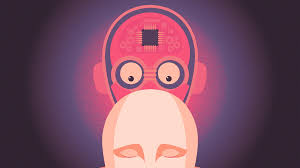
The latest generation of artificial intelligence models is sharper and smoother, producing polished text with fewer errors and hallucinations. As a philosophy professor, I have a growing fear: When a polished essay no longer shows that a student did the thinking, the grade above it becomes hollow—and so does the diploma.
The problem doesn’t stop in the classroom. In fields such as law, medicine, and journalism, trust depends on knowing that human judgment guided the work. A patient, for instance, expects a doctor’s prescription to reflect an expert’s thought and training.
AI products can now be used to support people’s decisions. But even when AI’s role in doing that type of work is small, you can’t be sure whether the professional drove the process or merely wrote a few prompts to do the job. What dissolves in this situation is accountability—the sense that institutions and individuals can answer for what they certify. And this comes at a time when public trust in civic institutions is already fraying.
I see education as the proving ground for a new challenge: learning to work with AI while preserving the integrity and visibility of human thinking. Crack the problem here, and a blueprint could emerge for other fields where trust depends on knowing that decisions still come from people. In my own classes, we’re testing an authorship protocol to ensure student writing stays connected to their thinking, even with AI in the loop.
